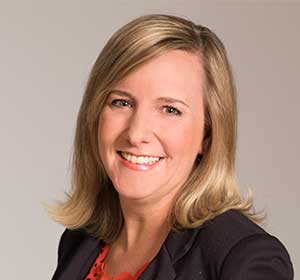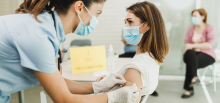When it comes to their kids, parents are always planning. One plan that's easy to make could have a tremendous benefit, even saving a life: planning to have preteens vaccinated against human papillomavirus (HPV). HPV is a sexually transmitted infection that causes genital warts but can also cause cervical cancer, as well as anal, vaginal, vulvar, penile, and oropharyngeal (mouth and throat) cancers. About 17,600 women and 9,300 men are affected by HPV-related cancers each year and nearly all sexually-active people will come in contact with HPV in their lifetime.
Most of the HPV infections that cause these cancers could be prevented with vaccination. Although HPV vaccination has been recommended for almost 10 years, uptake rates remain below average and a majority of our adolescents in Nevada are being left unprotected. In 2013, only 27% of adolescent females and 7% adolescent males in Nevada had completed the three-dose series. These rates fall considerably short of the Healthy People 2020 objective of 80% of 13-15 year olds fully vaccinated.
HPV vaccines are given in a series of three shots over six months. That's where some parents get bogged down — it's easy to get very busy with school, activities, work, and all of the juggling that parents of preteens do every day. When you go in for your son or daughter's first shot, don't leave without making an appointment for the next shot. Ask the doctor's office, clinic or pharmacy to send you a text, email, or phone reminder. Involve your kids — they probably know how to set up an electronic reminder better than you do!
While vaccinating against a sexually transmitted virus at age 11 or 12 might seem unnecessary, the preteen years are thebest time to vaccinate. The HPV vaccine only provides protection if it is given before exposure to HPV, so to get the most benefit, all three doses must be received before any kind of sexual activity with another person begins.
The HPV vaccine is covered as an in-network preventive care benefit under most insurance plans. If cost is a concern, the Vaccines for Children (VFC) program may be able to help. This program provides vaccines at no or low cost to children younger than 19 years of age if they are Medicaid-eligible, American Indian or Alaska Native, are uninsured, or their insurance doesn't cover vaccines.
If your son or daughter hasn't started or finished the HPV vaccine series yet — it's not too late! Like thousands of moms and dads across Nevada, you can protect your sons and daughters from HPV related cancers. There are a lot of things we can't control as our teens become young adults, but we can plan to protect them early — before they become sexually active — so they won't be another HPV-related statistic. Visit immunizenevada.org/hpvfreenv to learn more about HPV and HPV vaccines.
This article was originally published in the Reno Gazette Journal.



